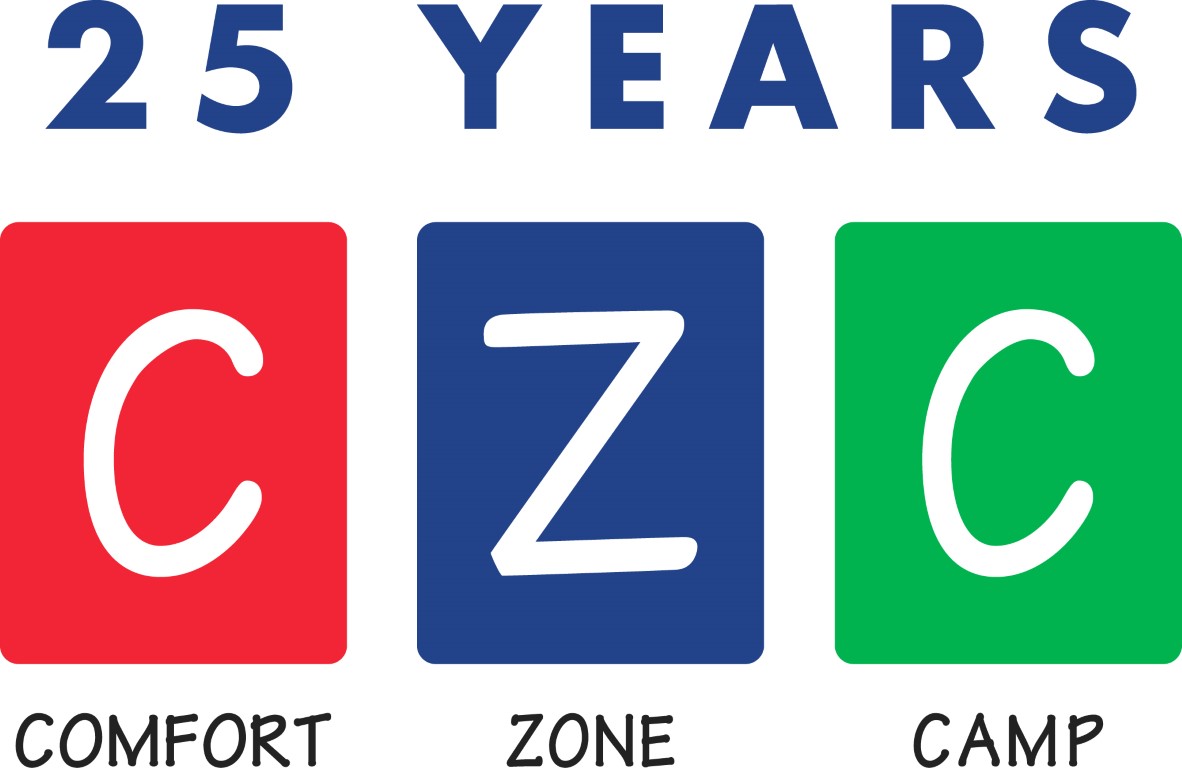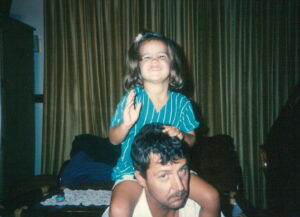I lost my husband in an accidental overdose. He was so much more than how he died.
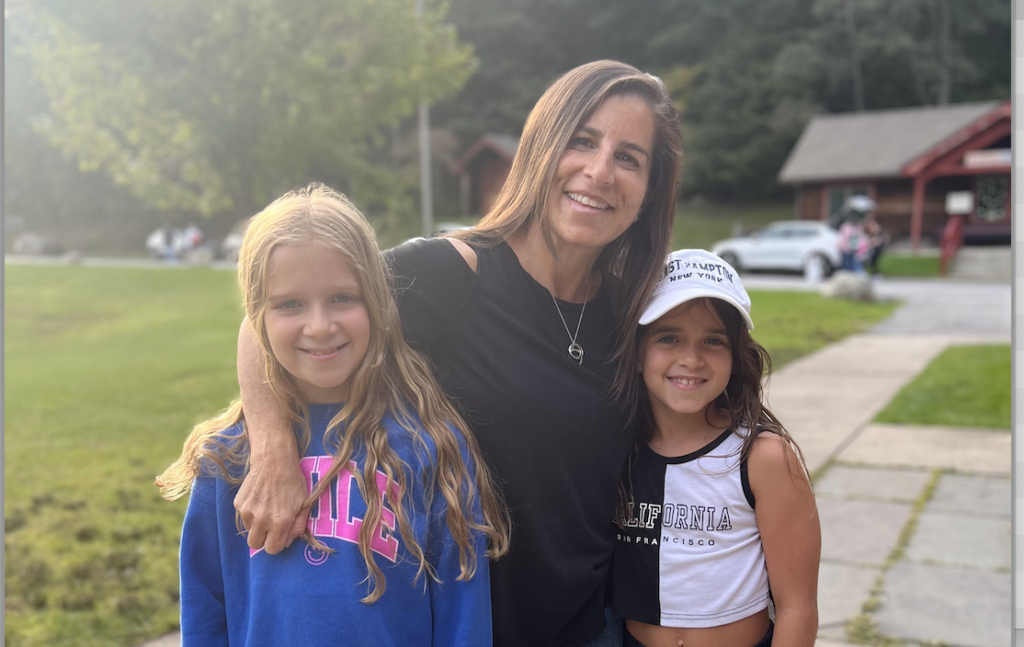
My husband Drew and I had a real love affair. This is something I cherish as I am aware not everyone gets to experience this. We met later in life and immediately connected on a deep level – we understood each other and in many ways, healed each other.
He was sensitive, not scared to express himself and did not shy away from an apology. He was talented and passionate about music. He wooed me by writing several love songs about and for me. He even wrote a song for each of our girls when they were born, and sang it to them on their 1st birthdays.
He knew just when and how to make me laugh. He had been through a lot in his life, worked through it, and used his experience to help others. He became a psychotherapist and was able to reach his clients in a very unique way.
“He brought this giving light with him throughout his life.“
He loved to sit down on a bench and chat with an elderly person or strike up a conversation with a homeless person, so they could be seen. He rooted for the underdog and there were no airs about him. He truly enjoyed volunteering to sleep and spend time with the homeless men in a shelter at our synagogue.
We were together for 15 years and have 2 amazing daughters; Harlow is 10 and Olivia is 8. Of course our relationship was not perfect, but through it all, no matter what, our deep love remained. Drew was a spectacular, fun and very involved dad from the beginning. He was an extraordinary and loving parenting partner. He worked hard and succeeded at making sure he had a very close, special and unique relationship with each of our daughters. I came across this quote recently, and it made me think of Drew:
“The strongest people are not those who show strength in front of us, but those who win battles we know nothing about.”
Drew struggled with a substance use disorder. He had fought his demons and won; he had been sober for many years. I believe it was his sobriety that allowed him to be present, to live and love fully and to give the way he did to others. I will never know what preempted it, but in March 2022, Drew relapsed.
We discussed this and he was deeply regretful as the last thing he ever wanted to do was hurt us. He made plans to go to rehab and get help. He was set to go and had organized a ride. My guess is that since he was going to rehab and was riddled with guilt and shame, he was going to get high one last time. Sadly, that’s literally what it was. Tragically, and unbeknownst to Drew, the drug he did had fentanyl in it and he was killed immediately.
The stigma around substance use disorders is rampant, awful, and isolating. For many, it even becomes a barrier to care. My closest friends and family know how Drew died, but there are still many who don’t.
“I fear other’s perceptions. I don’t want people to think of Drew and judge him for his last actions, or in turn judge me and my family.”
People’s reactions vary and change when you tell them HOW your loved one passed, and we feel it. Drew was my husband, my partner. He was a son, a brother, a friend, a therapist who helped so many, and a daddy to my girls. Does it matter HOW he died? Does it change anything?
Those that die due to an accidental overdose were loved just as much as those who died from other causes. Everyone’s life has value. Drew’s absence created a huge void in our lives. My children were hurting. I was hurting. I was attempting to manage both my and my children’s grief simultaneously. There were many very dark days.
I thought I knew what grief was, I thought I had an understanding of what people go through when a loved one dies. I was profoundly wrong. Until it happens to you, you have no idea. I wanted to do everything I could to help my family. My daughters and I were in therapy.
I was working with a grief counselor and joined a grief group that was specific to overdose loss. I was experiencing the benefit of talking to others who were going through the same thing as me. There was support, comfort and understanding. On the other hand, my girls were the only ones in their community who lost a parent. I searched for grief groups for them as I believed it would be helpful to meet other children in the same situation.
Now, I am a NYC mom and I know how to find things for my kids. I checked with therapists, school psychologists, friends, parents… There were no grief groups for kids in NYC. In my haze shortly after Drew died, someone had mentioned “grief camps” for kids. This sounded like an oxymoron, grief and camp. A parent at my children’s school was involved in and volunteered for Comfort Zone Camp. She talked to me about the camp and informed me it is free for all who attend.
I’m sure you can imagine the financial stress of going from a two income household to one income, especially in Manhattan. This new financial insecurity was scary and consuming. The fact that the camp is free removed a tremendous amount of stress and apprehension, and made going possible for us.
After a lot of research, multiple conversations with Comfort Zone Camp staff members, knowing there was no cost to me, camp was only for a weekend and that there was a concurrent parent group that I could participate in in New York, it seemed like a no-brainer.
My daughters and I didn’t know what to expect.
I was quite nervous and anxious and had no idea what this weekend was going to be like. It was (and still is) very important to me to continue our grief journey. At first I thought I was foolish for participating in the optional parent program and giving up the possibility of an entire 48 hours of alone time – this has become a precious commodity since Drew died. But again, healing took priority.
We arrived at the camp; we were warmly welcomed and set up in our “bunks”. The girls met their “big buddies”. They are trained volunteers who are assigned to one child for the duration of the camp. My girls were riding bikes, doing archery and participating in camp activities in no time.
All of a sudden, they were no longer “the kids whose dad died”.
They were surrounded by other kids of the same age who had experienced the loss of a parent. The value of this alone is of paramount importance for my family’s support and healing. Everything at Comfort Zone Camp has been well thought out.
The camp schedule itself is seemingly a perfect balance between fun, team building activities and “healing circles”. The parent group follows the same schedule of activities as the kids, which by design, made it easier for us to talk and relate our experiences with one another after camp.
We listened to a prior camper share their story of losing a parent. We learned skills, wrote a letter to our loved one and participated in a beautiful memorial service.
“For the first time, my girls were no longer alone in their pain, nor was I.”
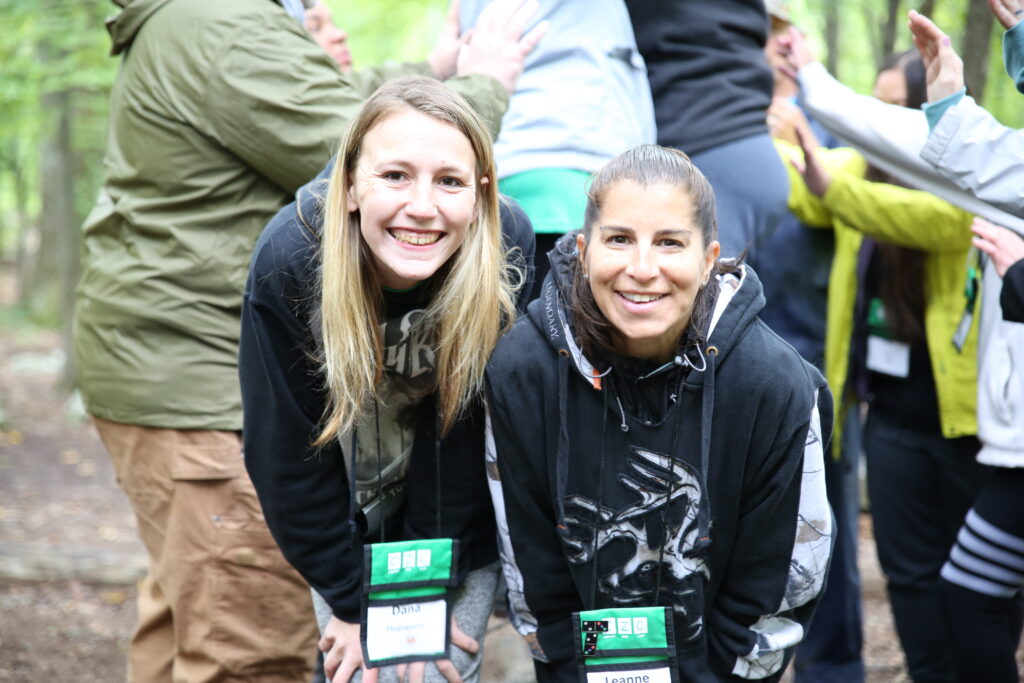
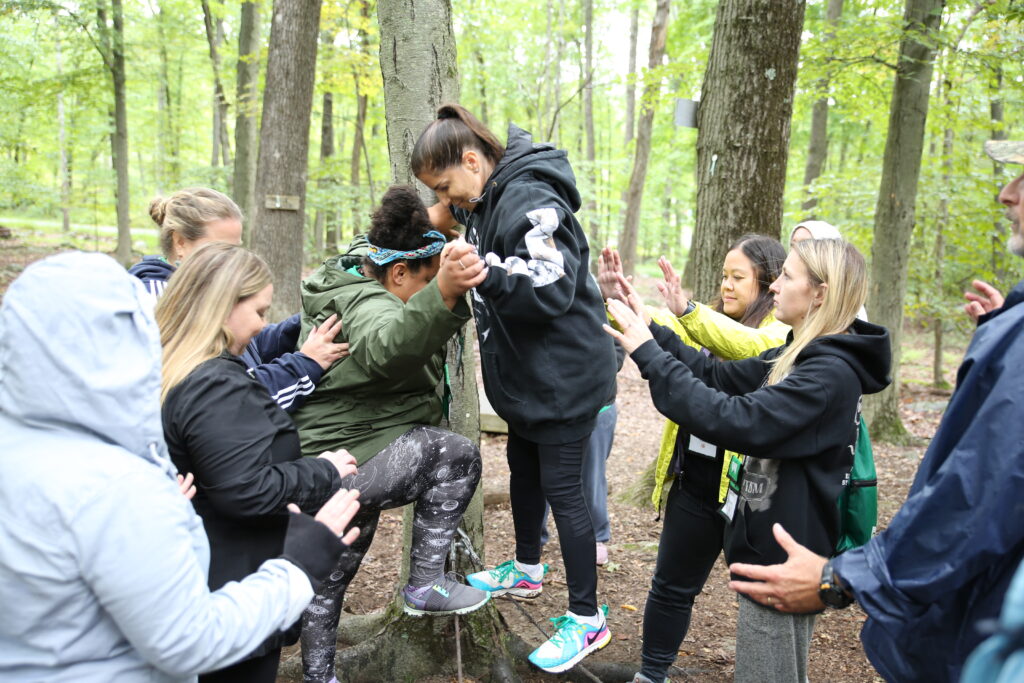
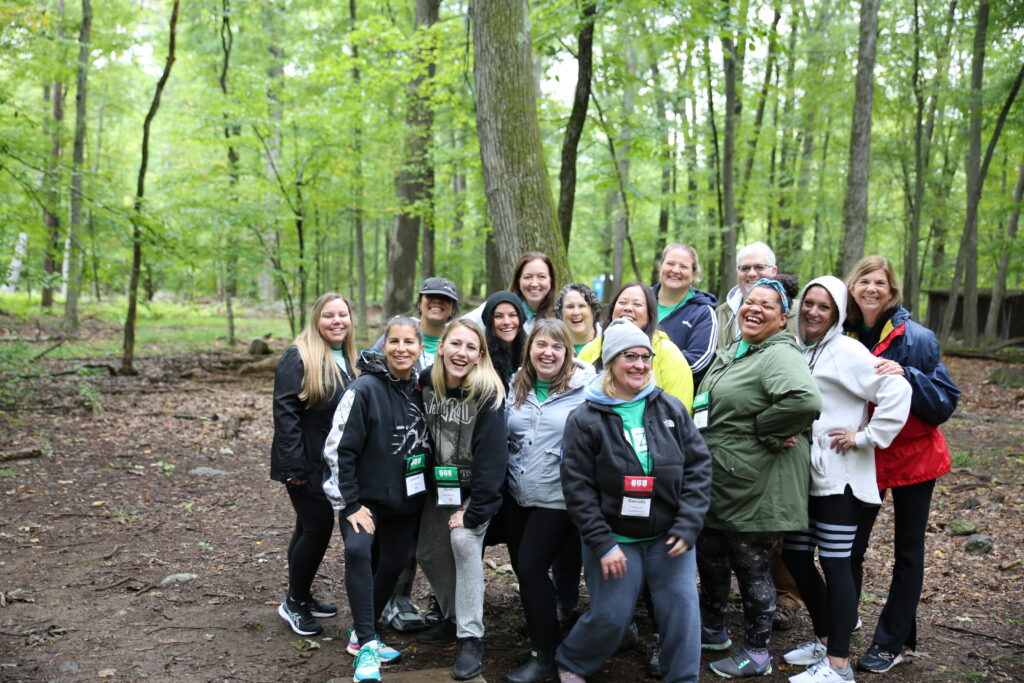
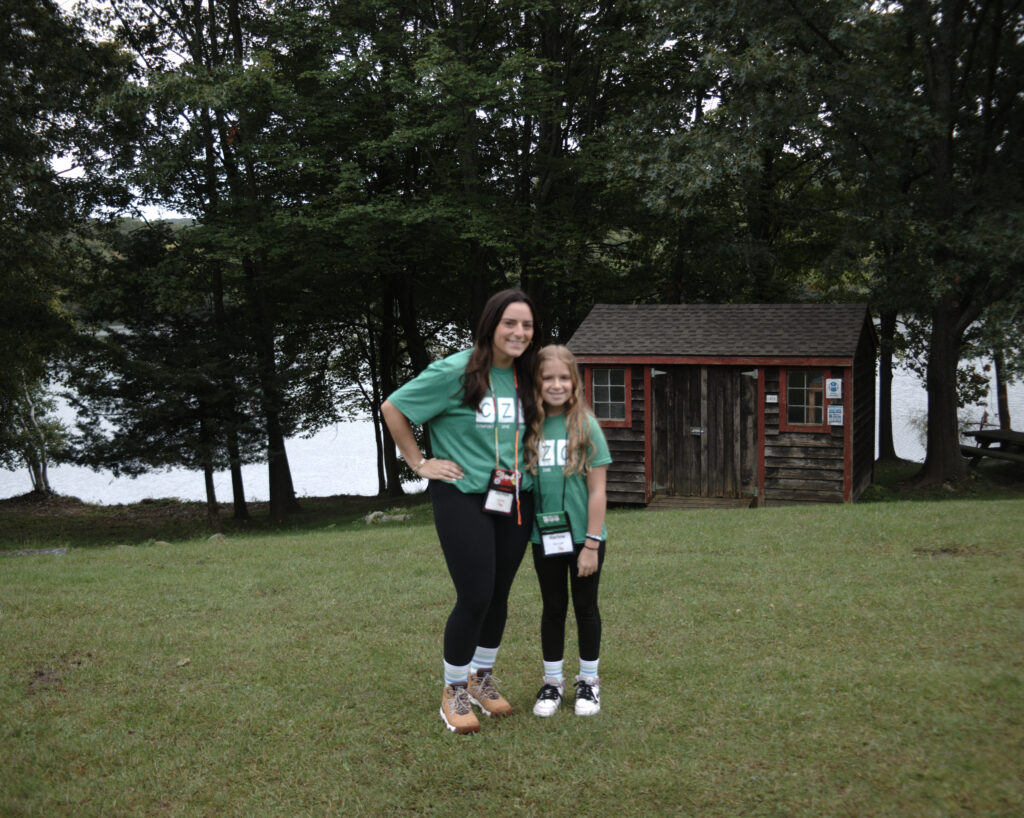
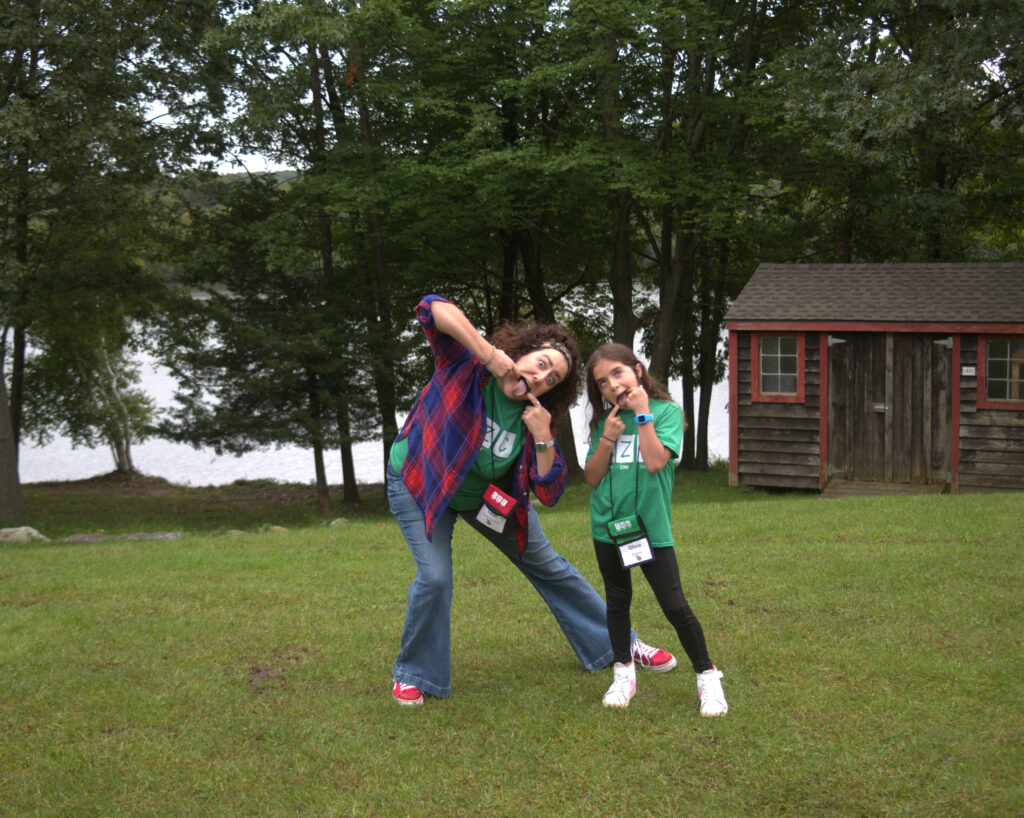
I was surrounded by other women who lost their spouses. That said, even in a group of other widows, I felt discomfort and fear of stigma regarding my husband’s cause of death. I decided to take the risk and share with these women, and was met with only love and support. I walked away from my first weekend with Comfort Zone Camp with a sense of community and new found support. I felt lighter and was a better mom.
I was unsure how my girls were going to react or what their takeaway was going to be. Much to my surprise and delight, my quite particular daughters agreed to go again!! This is how I know they too had a great experience. Thanks to the awareness, sensitivity, and sadly the need, I was informed that A Little Hope Foundation would be sponsoring an Overdose Loss camp with Comfort Zone Camp in New York. It was the first ever of its kind.
The camp filled up quickly, and in confirmation of the need, there was a long waitlist of campers who wished to attend. There are many things we’ve experienced that are specific to HOW Drew died. I was thrilled at the possibility of attending a specific loss camp, as Drew’s cause of death was something that affected our family at the core.
It was sudden – Drew dropped the girls at school on Monday morning and they never saw him again. Our family has had to deal with the stigma around Drew’s cause of death as my girls also tried to process that Drew had a disease that caused him to engage in these behaviors and that it doesn’t change anything about who he was to us or the love we shared.
“Drew is not how he died.“
The first-of-its-kind overdose loss camp was spectacular. The depth of honesty and vulnerability was powerful and contagious. Although the specifics of our stories differed, there were many common themes woven through all our stories: identification, community, compassion, empathy, and understanding.
The value of being in an environment free from stigma and judgment is immeasurable – I don’t know anywhere else in the world where this would be possible. My girls were able to speak freely about their dad to other kids and adults who understand. They loved their big buddies, Jaimee and Leah. The girls had so much fun at camp, and came home singing and performing some amazing camp songs, including my favorite “Herman the worm!”
My daughters and I, all things considered, are in a good place from a grief and healing standpoint. As a parent, I want to give them and myself every possible means to heal. As crazy as it sounds, we cannot wait until the next camp!!
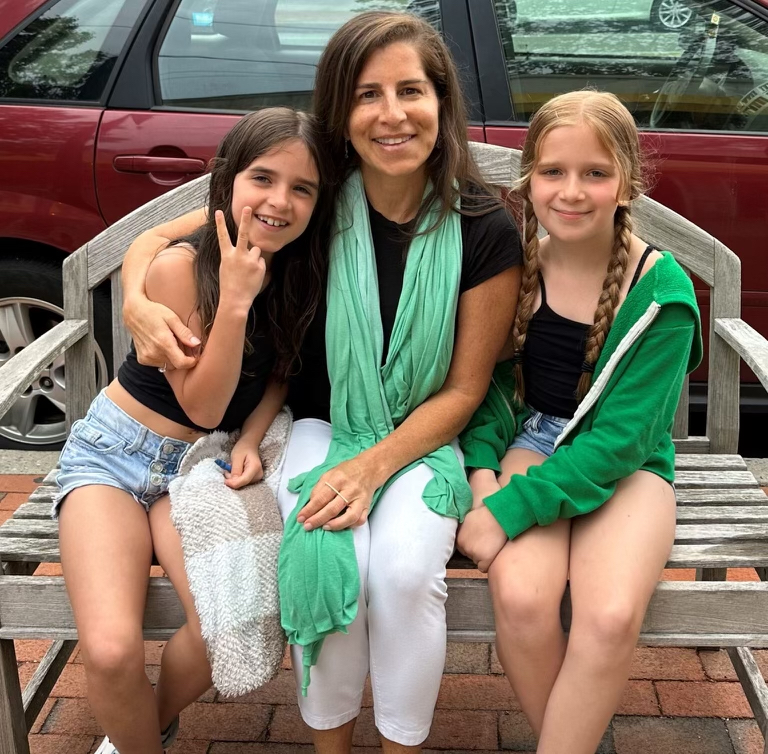
By: Leanne Goldberg
